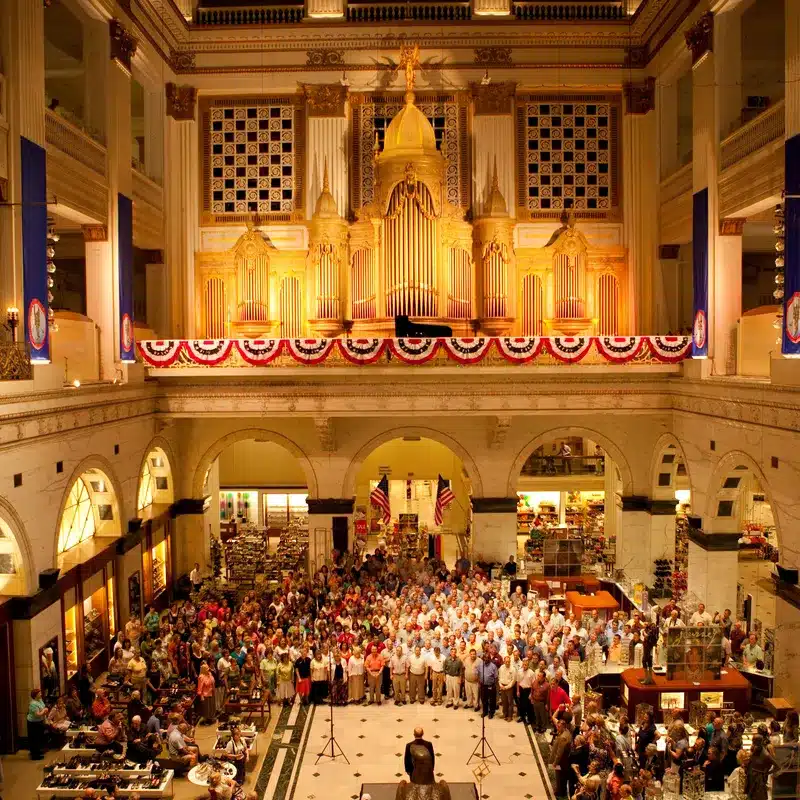Wigmore Hall banned my watch because ‘the tick is too loud’
mainFrances Wilson, pianist and teacher, finds the chamber music venue a little too precious. She has twice been ordered to take off her watch.
If, on this exquisite basis, Wigmore patrons were required to leave their pacemakers at the door, the hall would be half empty (or half-dead).
Read here.






…or how about hearing aids?
They are in fact far more distracting. At Marc-André Hamelin’s recent Wigmore Hall concert a hearing aid whistled throughout the performance of a piece of contemporary music, all to audible to audience and I am sure performer (but not to its owner presumably). It was very intrusive, so much so that a member of house staff made an announcement afterwards requesting people check their devices were at the correct setting
I think as performers and concert goers, we need to become a little more thick skinned. If every little peep is such a massive disturbance during a performance and we attempt to remove it, we’ll be playing to empty halls…..unless, the gentle hum of the exit lights begin driving us insane…….
I was there with my old auntie Gladys, and we perfectly understood the noise was part of the piece.
In quiet, slow, or static parts of a piece of music, I — speaking both as a performer and as an audience-member — indeed find the ticking of a wrist-watch *extremely* distracting (when practising a slow and sparse piece, I have to place my watch in another room and close the door!). For this reason, I always remove my watch and place it in my suit pocket, which muffles the ticking sound adequately for my ears (if it were not adequate for the ears of others, I would be glad to be advised of the fact, so that I could take remedial action). In common with many audience-members, I live outside the M25, so my round trip to a live concert in central London is typically more than two hours. I make the journey to be in a space where distractions have been reduced as far as is humanly possible, and where I can hear the music without the need for a technological intermediary. But if others either can not or will not respect the importance of maintaining this special ambience, I start to wonder whether it is still worth making the journey and paying good money for the concert-tickets.
In this context, I do not think it unreasonable for an audience-member to be asked to remove their wrist-watch (NB the article cited does not say that the watch in question was ‘banned’). Leaving aside the auditory considerations, it is bad form to be checking the time during a concert (if you absolutely have to leave early, it is easy enough to scoop your watch out of your pocket and check during the applause between works).
Are you okay with other folk breathing?
Just asking…..
No joke! Heavy breathers (pre-snoring) sitting next to you can be infuriating.
Better to discreetly look at your wristwatch than pull out a smartphone and turn that on at a concert which is both rude and distracting to other audience members and performers
Well stated, SV Millwood. I, too, wonder at what point paying very good money and going to the trouble to haul down to the hall become worth it when having to contend and fight-off unnecessary distractions. I often have considered abandoning the practice once and for all.
I would also add, why does one need a watch in a concert hall anyway? What time is it? It’s time to listen to the music. What time is it over? It’s over when the music stops playing. You’ve got somewhere you need to go? Then go– at intermission or between pieces. Unless you’ve having a heart attack, you best not leave any other time.
Unless maybe you want to compare this performer’s tempo of the allegro vs. that of the great Schnabel’s (or some other benchmark), I can think of no reason to wear a watch in the hall at all.
If one has ever attended Wigmore concerts you can come away at times feeling it is the land of the living dead so how a watch could offend is beyond me .I’ve attended funerals
that had more life than some august recitals at the hall .
It’s all getting too precious and all the snobbery that goes with it … so rah, rah, rah!! Start with the audience coughing, the snoring, the page turning and those SmartPhones, tablets and mobiles – those who follow the score with a bright light on their tablets beside you!!
Some watches are very loud. Most mobile phones, even if silent, have built in light which is distracting. Handbags – with or without treats – will rustle when engaged with. Badly adjusted hearing aids can even swamp a full orchestra. And some disabled people love the experience so much that they make uncontrolled noises of appreciation during the performance.
So what to do? Stay home – or go to the Wigmore Hall and hope for an educated, sympathetic and therefore attentively undistracting audience?
One final word. Programme and sweet paper rustlers, baubles, bangles and beads janglers, handbag and glasses case snappers, whisperers, bright Kindle libretto readers, smart phone checkers, unhappy children, water bottle, glasses case and walking stick droppers, not to mention the persistent, full throated coughers, have made me, a hypersensitive septuagenarian, consider staying at home in my dressing gown with a cup of hot cocoa, listening to CDs on my laptop. I will miss the cut and thrust of the shushing, though.
The Wigmore Hall staff has become so sophisticated that they also stipulate in their contracts with performers that they should not produce decibels beyond a molto mezzo forte. When Ricardo Brunel unintentionally let himself go in bar 34 of Ravel’s “Scarbo” at his concert on 12 March 2008, the hearing aid of Sir Leonard Shrimpshire short-circuited and put the owner into a coma, which was only detected when the poor man was discovered lonely seated in the empty hall when staff members were turning-off the lights after the concert. After recovery, Sir Leonard returned to the Wigmore concert series as a loyal partron, not hindered by the fact that this misadventure had left him completely deaf.
Finally! Someone with a sense of humour.
Amen.
Sophisticated? My foot!!
Ms Wilson has forgotten to mention ‘nitwits’ in her description of the Proms audience mix.
They have every right to ban something (however small) that disturbs the listening experience of other patrons.
Start with the audience!!!
I’ve got to say, I’ve had some otherwise wonderful concert experiences ruined by the ticking watch, heavy mouth breathing, or hearing aid squeals that in most situations would be considered unobtrusive.
As Sartre so neatly put it, hell is other people.
I was at a ballet once in a very large venue where the artificial respirator required by a wheelchair patron made quite a loud noise throughout. After a while I stopped noticing. (I was sitting nowhere near — I can’t speak for those in the immediate vicinity). I was complaining about it to my companion before the show began, not sure the source of the noise, and when she told me what it was, I was chastened.
There is no excuse for ill-adjusted hearing aids, and loud watches — a rarity in the digital age — can be muffled in a pocket, as noted above. But heavy breathers, who seem to bring some distress above, are probably not doing it to annoy Wigmoreans — it probably means they have a breathing difficulty. In these days of ramps and access and equality, are people with this particular affliction to be restricted from coming to musical events? Some are probably in great discomfort, and it is rather valiant of them, in my view, to continue to support live music.
The story doesnt make much sense, who ordered her to take it off and how did the person know it ticked too loudly? It would have to be very loud for officials on the door to hear it as she went in.
Added to the audiences deplorable behavior you have to notice the musicians and singers sipping water bottles, brass players blowing spittle on the floor, horn players empting spittle by performing isometric exercises with their instruments, oboe players sticking feathers up their (instruments) orifices, rosin dust and horsehair filaments flying about, and lastly the performer mopping their sweat-laden brow with a suspicious looking rag. Revolting and despicable!
Some musicians make even sounds with their instruments, and not always the type of sounds the instruments were designed for, as with Helmut Lachenmann:
http://www.youtube.com/watch?v=pYKkZrPz13s
Just to clarify – it was someone sitting in front of me who asked me to remove my watch (a Swatch brand). On the second occasion, months later, it was the same person: I recognised her.
I wouldn’t dream of checking my watch during a concert – I agree that it is highly discourteous to the performers. I happen to wear a watch to ensure I arrive at the concert venue in good time for the start of the performance.
Swatches are ridiculously loud, one can even hear them across a large room if the general noise level is not too high. Sitting directly in front of one, particularly if the wrist of it’s owner is on the same level as one’s ear, can be quite nerve wrecking. I speak from personal experience. Please put the thing in your pocket or wear some other brand which are practically all much quieter. I would bet Ms. Wilson is a Swatch owner as well.
Thomas Ades (sitting in front of me) berated me for wearing a swatch at a Purcell Room concert. He compared the sound of the ticking to hammerblows. At the time I thought he was being overly precious but with hindsight, and having experienced the same I have to say he was ultimately right.
As an off-duty bomb disposal worker, I do find the sound of a ticking watch affects my concentration at piano recitals.